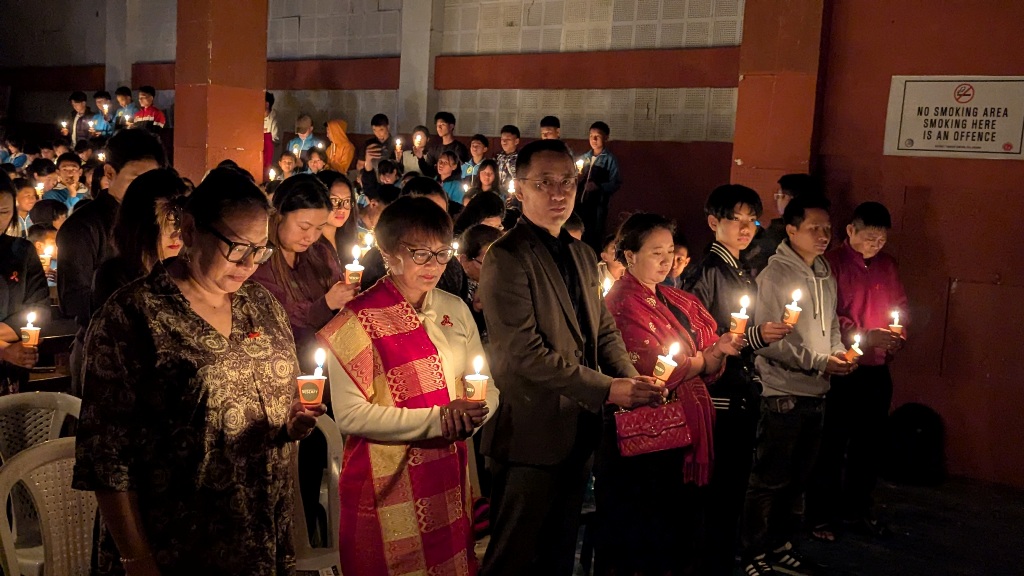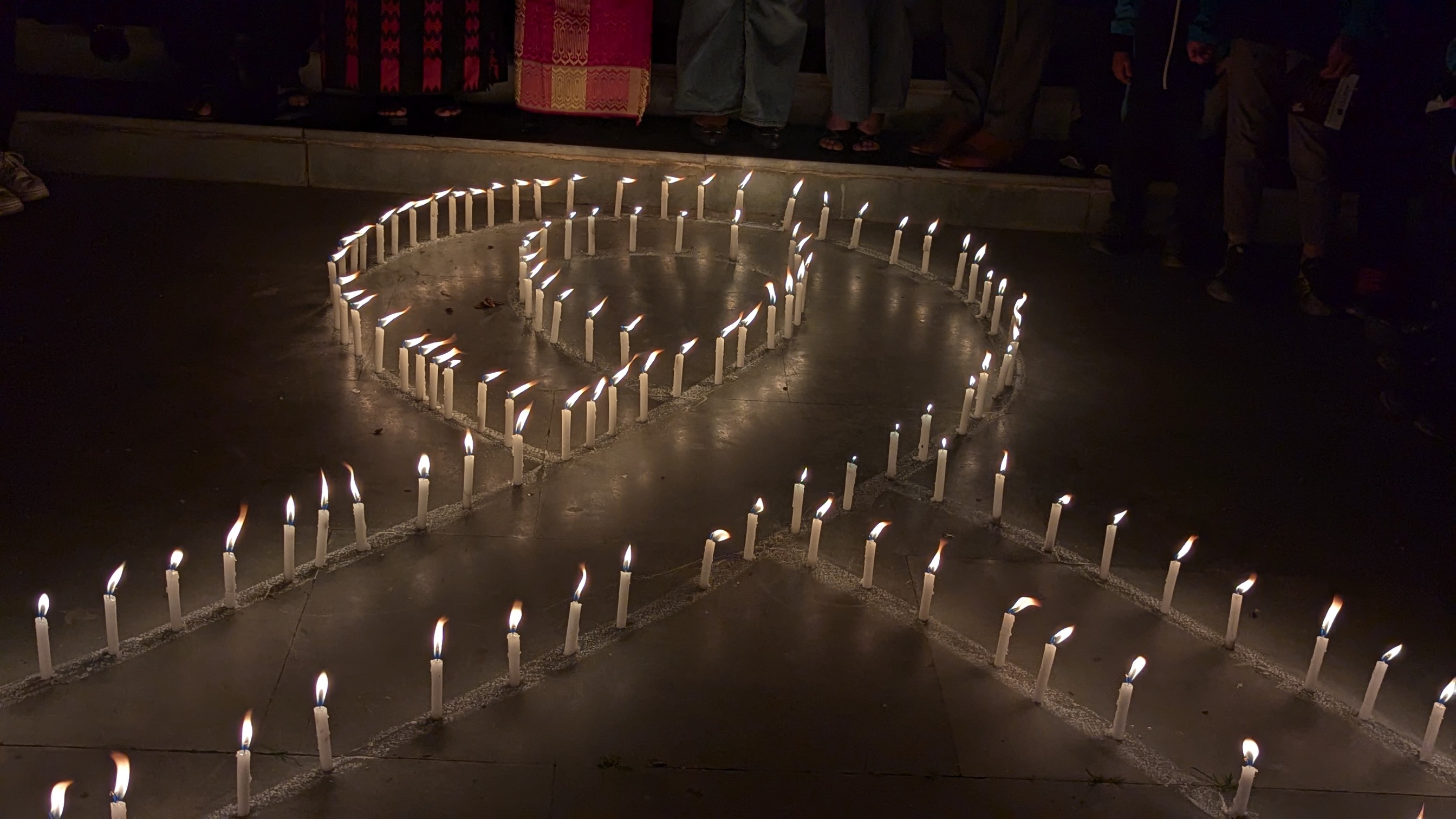THURSDAY, MAY 22, 2025
- Home
- Nagaland observes AIDS memorial, calls for inclusive policies and end to stigma
Nagaland observes AIDS memorial, calls for inclusive policies and end to stigma
Published on May 18, 2025
Share

Participants observing a minute of silence in memory of lives lost to HIV at the 42nd International AIDS Candlelight Memorial in Kohima. (EM Images)
- KOHIMA — Nagaland observed the 42nd International AIDS Candlelight Memorial in Kohima on Sunday with a call to integrate HIV care into universal health coverage and adopt inclusive policies to support people living with HIV (PLHIV).
- Held at Indira Gandhi Stadium, the event brought together PLHIV, health workers, and members of the public to honour lives lost to AIDS and reaffirm commitment to solidarity and support.
- In her solidarity message, Dr. Akuo Sorhie, former Project Director of Nagaland State AIDS Control Society (NSACS), called for political will and leadership to prioritise HIV/AIDS in policy-making, strengthen healthcare systems—especially in rural areas—and end stigma through inclusive laws and public awareness.
- This fight is about justice, humanity, and love, she said, urging everyone to educate themselves, speak up, and care for one another without judgment or fear. Lighting candles, she added, is a symbolic pledge to remember those lost, support those in need, and lead efforts to end the epidemic.
- She reminded that many PLHIV in Nagaland are not only surviving but thriving—rising above stigma and discrimination—indicating progress in public perception and support systems.
- Call for urgency
- Lanu, President of the Network of Naga People Living with HIV/AIDS (NNP+), highlighted that the memorial is observed worldwide to raise awareness and ensure access to life-saving treatment, aiming to meet the global goal of ending AIDS as a public health threat by 2030.
- However, citing statistics, he said that in 2023, over 9 million PLHIV did not have access to treatment; 630,000 people died from AIDS-related illnesses; and 1.3 million new infections were reported, including 120,000 children.
- “These figures are a sad reality,” Lanu said, stressing that only strong collaboration between PLHIV leaders and governments can bring real change.
- A life transformed
- Aching, President of KNP+, shared her personal journey after being diagnosed in 2004. She recalled the fear and stigma that once silenced PLHIV and noted that many of her peers died before effective treatments like antiretroviral therapy (ART) became available.
- Her husband, who never disclosed his HIV status, passed away before ART reached Nagaland. Though devastated, she chose to fight back and has since dedicated her life to HIV advocacy.
- She now leads efforts to support PLHIV and raise awareness. Married again and a mother to HIV-negative children, she urged others not to hide their status, stressing that disclosure can protect others and help communities fight stigma together.
- “Ending HIV is a collective effort, and the churches must also come forward to support this cause,” she appealed.

Symbolic candle lighting during the International AIDS Candlelight Memorial held at IG Stadium, Kohima. (EM Images)
- HIV in Nagaland
- Nagaland’s first HIV case was reported in 1990. From 2006 to 2024, the state has recorded 36,085 HIV-positive cases. Between 2006 and 2025, a total of 3,676 deaths were recorded among individuals under ART.
- Despite the challenges, stakeholders say the outcome could have been worse without the collaborative response from PLHIV networks, government agencies, churches, NGOs, civil society organisations, and dedicated individuals.

